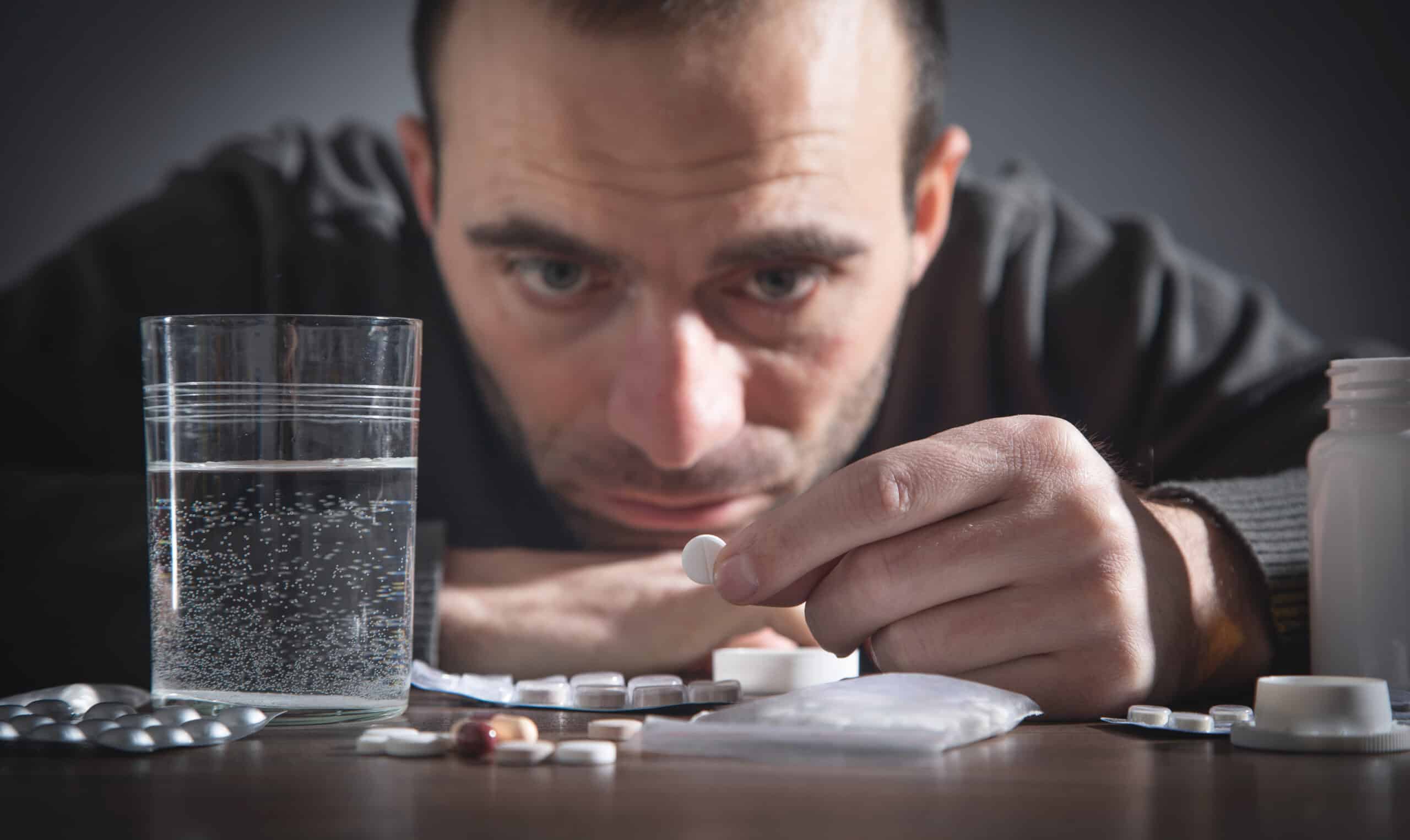Addiction Treatment in Worcester
Addiction is a complex condition that affects millions of people across the United States.
It can involve substances like alcohol, opioids, or stimulants, or behaviors like gambling and internet use. Addiction impacts brain function, as well as your daily life, relationships, health, and career.
But there are treatment options available that offer you the chance to achieve long-term recovery. Learn more about addiction and how Blue Hills Recovery can help you break free from addiction’s grasp.
What is Addiction? (Substance Use Disorder)
Addiction, or substance use disorder, is a chronic condition that alters your brain’s reward system. This leads to compulsive use of substances or engagement in behaviors, despite the harmful consequences.
You might be surprised to learn that this condition can affect anyone, regardless of age, background, or circumstance. And no matter who you are, addiction often leads to significant physical, mental, and social challenges.
But addiction is treatable with the right kind of therapy, medical care, and a strong support system. At Blue Hills Recovery, we offer intensive treatment and compassionate support in recovery.


Why Do People Form Addictions?
Addictions don’t develop overnight. Instead, they develop through repeated exposure to substances or behaviors. These change your brain’s chemistry over time, disrupting how its natural reward system works. When you engage in positive activities like spending time with loved ones or eating, your brain releases dopamine—the “feel good chemical”. But the science of addiction shows that substances flood the brain with extreme levels of dopamine, creating an intense pleasure response. As your brain adjusts with repeated use, it becomes less sensitive to the dopamine surges. So, you eventually need more of the substance to achieve the same effect. This leads to addiction over time. While not everyone who uses substances develops a substance use disorder, factors like genetics, mental health conditions, and environment can increase your risk of addiction.
What Causes Addiction?
Addiction is complex and caused by several factors. Changes in brain chemistry, genetics, mental health issues, and environmental influences all play a part in whether you may form an addiction.
Addiction can be broken down into substance addiction and behavioral addiction. Both can affect your brain’s reward system in a similar way.
Substances such as alcohol, nicotine, opioids, and stimulants trigger the brain’s reward system by releasing dopamine, which creates feelings of pleasure. Non-substance addictions, like gambling or compulsive internet use, have the same effect.
Over time, continued exposure to the stimulus desensitizes your brain, and you need more of the substance to achieve the same effect. This makes you want to chase the same feeling, leading to addiction.
Risk Factors for Addiction
Addiction can impact people from any walk of life, but certain factors can increase your chances of developing a substance use disorder.
Key risk factors for developing an addiction include:
- Genetic predisposition: If addiction runs in your family, you may have a higher genetic risk. People with close relatives who struggle with addiction may be more vulnerable.
- Mental health conditions: People with conditions like Attention-Deficit/Hyperactivity Disorder (ADHD), depression, or anxiety may use substances to manage emotions.
- Influence of peers: Social circles play a huge role, particularly for teenagers and young adults. Peer pressure can lead to experimentation and misuse over time.
- Family dynamics: A lack of parental supervision, support, or strong family bonds can increase the likelihood of addiction. Substance use can be a form of escape.
- Age of first use: The earlier someone starts using substances, the more likely they might be to develop an addiction. Early drug use can alter brain development and decision-making.
- Drug type: Some substances are more addictive than others. Drugs like opioids, stimulants, or nicotine have a higher potential to create dependence quickly.
- Environmental factors: Experiencing stress or trauma and developing post-traumatic stress disorder (PTSD), can increase the risk of substance abuse.
Who is Affected by Addiction?
Addiction impacts people of all backgrounds and life stages. But while no demographic group is immune to substance use disorders, certain groups are more affected than others.
Addiction among different demographics looks like:
- Young adults aged 18 to 25 are most affected by substance use disorders.
- In 2021, 46.3 million people aged 12 or older had a substance use disorder.
- Alcohol use disorder is more common than drug use disorder.
- Substance use disorders were higher in males than females across all demographic groups.
Substance use disorders also impact racial and ethnic groups at different rates in the United States. Rates of addiction include:
- Native American or Alaska Native adults: 12.2%
- Adults identifying with more than one race: 10.8%
- White adults: 8.2%
- Black or African American adults: 7.6%
- Hispanic or Latino adults: 7.5%
- Native Hawaiian or Pacific Islander adults: 7.3%
- Asian adults: 4.3%
Signs of Addiction
Recognizing addiction in a loved one can be difficult, especially when behaviors are subtle at first.
But there are some key signs that can help you spot substance use or addictive behaviors:
- Unable to stop: Your loved one may try to quit or reduce their use, but find it hard.
- Increased tolerance: They need more of the substance or activity to feel the same effects.
- Obsessive focus: They become preoccupied with the substance or behavior, prioritizing it over other responsibilities.
- Feelings of lack of control: They may feel helpless and overwhelmed by their addiction, affecting their daily life.
- Experiencing withdrawal symptoms: When they stop using, they might experience physical symptoms like sweating, shaking, or anxiety.


Types of Addiction
Addiction can involve behaviors, such as gambling or excessive internet use, or substances like drugs and alcohol. When diagnosing substance addiction, doctors refer to it as substance use disorder (SUD) This condition is based on criteria set by the American Psychiatric Association’s diagnostic and statistical manual of mental disorders (DSM-5). SUDs vary in how serious they are, but they can all have a devastating impact on health and daily life.
Alcohol Addiction
Drug Addiction
Prescription Drug Addiction
Behavioral Addiction
What Happens When Addiction is Left Untreated?
Addiction is a chronic disorder that affects your brain’s reward, stress, and self-control circuits. Over time, these changes make it difficult to stop using substances, even when facing serious life consequences.
Without treatment, the compulsive behaviors that come with addiction can last a lifetime. They can lead to worsening physical and mental health, broken relationships, financial difficulties, and even death.
Addiction Treatment in Worcester, Massachusetts
In Worcester, Massachusetts, you can find a range of addiction treatment options designed for those facing substance use disorders.
Our addiction treatment programs at Blue Hills Recovery offer truly comprehensive care, helping you or your loved one detox, recover, and stay sober.
Detox Programs
Addiction Rehab Programs
Day Treatment/Evening Treatment
Mental Health Care

Get Expert Help for Addiction at Blue Hills Recovery
If you or a loved one is struggling with addiction, Blue Hills Recovery offers compassionate and expert care to guide you toward recovery.
Our patient advocacy is second-to-none, and our comprehensive treatment programs are designed to thoroughly address both the physical and mental aspects of your addiction.
We know it’s not easy. But with the right support and resources, you can overcome the challenges of substance use and start a healthier, happier life.
Contact Blue Hills Recovery today to explore your treatment options and take the first step toward lasting recovery.
Addiction Treatment FAQs
How is addiction treated?
How do you overcome addiction?
How long after addiction treatment does it take to rewire your brain?
Can you cure addiction?
Is addiction a chronic disease?
Sources
Let’s talk about how we can help.
A Life of Healing Can be Yours.
You deserve to become your best self. With decades of combined experience in the field of addiction medicine, our staff knows what it takes to build a foundation for recovery.